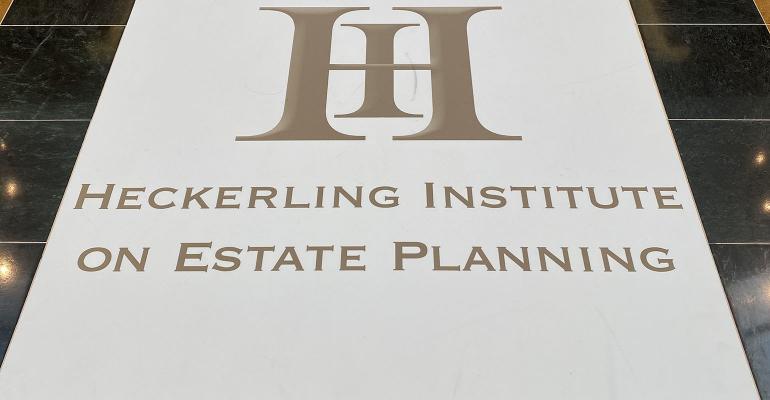In his 2020 Heckerling presentation, “It’s a Small World After All: Representing Global Families During Times of Unprecedented Change,” Joshua S. Rubenstein, a partner at Katten Muchin Rosenman LLP in New York City, discussed the challenges of estate planning on an international scale in light of the unprecedented amount of change taking place in all areas of life and all corners of the globe. From political turmoil domestically and abroad to increasing challenges to reasonable expectations of privacy, Rubenstein explains how representing the global family has become much more complex.
Rubenstein started the presentation by laying out the issues arising from advising the ultra-high-net-worth. Some of the noteworthy issues include rising tax rates and concerted enforcement efforts among countries, rapidly changing views of marriage, gender equality and what’s considered a modern family, and the notion that trusts are under attack by most countries outside of the United States as per se shams.
The Recession
He chalks up the start of some of this unprecedented change in society to the summer of 2008, when we saw the beginning of a worldwide recession, the near collapse of banks but for government bailouts and the discovery, and what would later be collapse, of Ponzi schemes, as well as the ongoing inability of the United States to pass reasonable or timely legislation (despite our modern technology permitting the rapid dissemination of such changes in the law).
The Evolution of Trusts
As governments around the world are increasingly blurring the lines between what’s considered tax evasion as opposed to tax planning, given a desperate need for revenues, Rubenstein posits that estate planners have to take partial responsibility for that shift as well; he feels that practitioners have pushed the envelope with trusts. He went on to explain the difference between the basic trust and the modern trust as it is today. The basic trust was meant to prevent real property or transfer taxation as it was passed down from generation to generation, didn’t avoid incomes taxes, wasn’t perpetual and was exempt only from beneficiaries’ creditors. In contrast, the modern trust can be perpetual, exempt from income taxes under certain circumstances, exempt from one’s own creditors, and even repeal traditional conflicts of law choices to defeat property or marital rights. This in turn has led to many parts of the world ignoring or piercing these trusts.
Despite the bad taste that trusts are leaving behind, Rubenstein also cautions that using business entities, such as family limited partnerships, in lieu of trusts is not the end all, be all solution. Partnerships and corporations are subject to business and commercial laws, not the donative laws of wills and trusts, meaning, for starters, you need to have a business purpose.
Increased Regulation
The plethora of reporting requirements, starting with the Foreign Account Tax Compliance Act enacted by the United States to tackle tax evasion and now the more global Common Reporting Standard, are doing away with the notion of secrecy. These transparency requirements, coupled with modern technology and the accessibility of data, means that the privacy which UHNW families have come to relish is also coming to an end as they know it. Some European regulations now require practitioners to report information to authorities regarding any individuals that they have reason to believe may be evading taxes, which conflicts with the attorney-client privilege rules in the United States.
The Future for Practitioners
Living in a world where change is the new norm isn’t necessarily a bad thing for practitioners, according to Rubenstein. In fact, he feels that it puts practitioners in a good position. For one, with all the new challenges and considerations, there’s now more opportunity and need for planning. Now more than ever, one size does not fit all, especially with modern considerations such as same-sex marriage, gender fluidity and posthumous conception with frozen genetic material.
The expansion of wealth also means that there’s now more to fight about. Divorce and longer life expectancies are contributing to increased private client litigation. Additionally, estate planners are also encouraging litigation by putting bells and whistles on trusts—ones that beneficiaries often don’t take kindly to, given the limitations they put in place on their inheritance.
When planning for global families, and in general, the two biggest takeaways of the session were: (1) plan for change and (2) plan for controversy. When possible, Rubenstein recommends keeping documents flexible and being transparent to avoid surprises.





